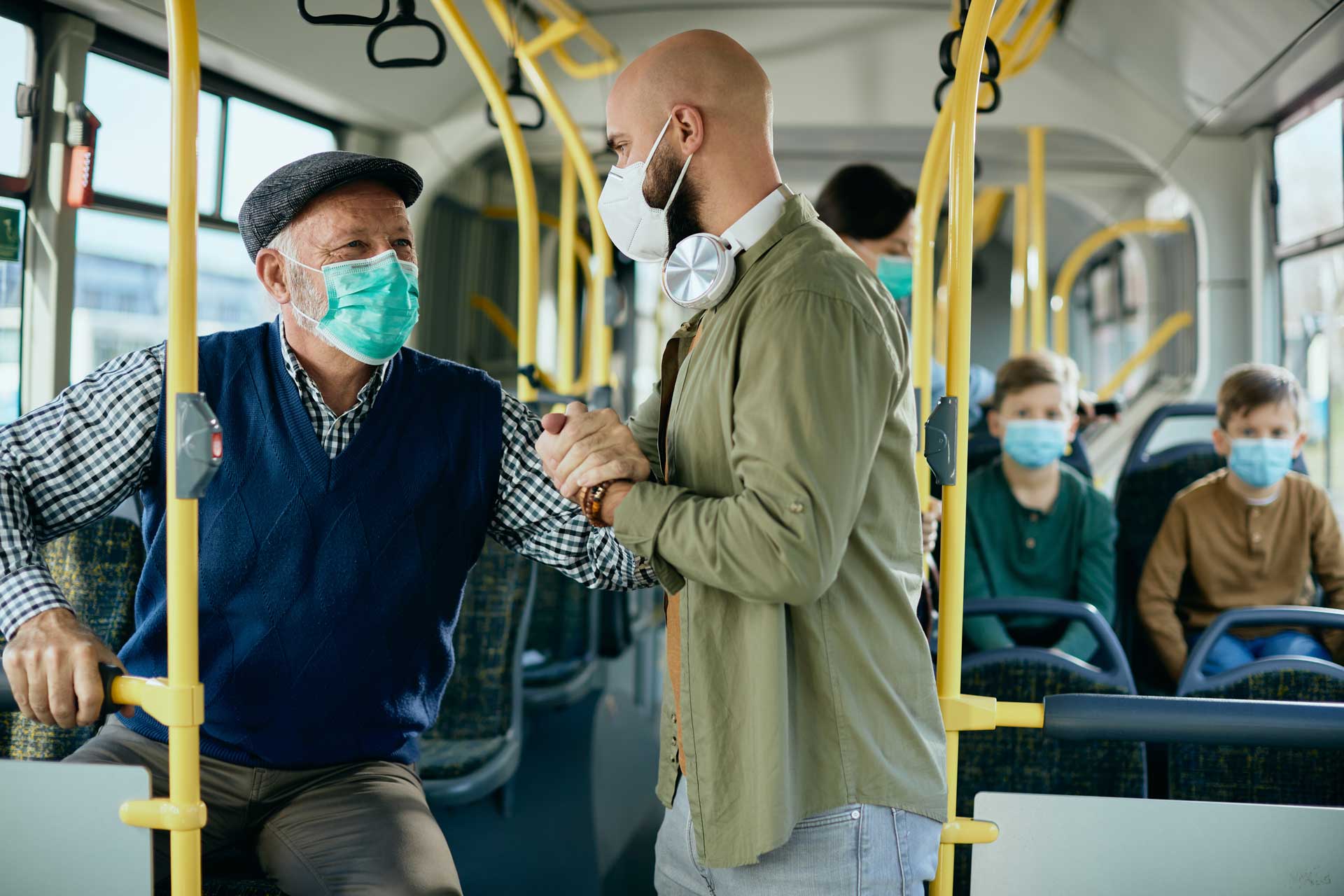Preserving the quality of the air we breathe every day is crucial to our health and our environment. Public transportation and local businesses are places where air quality can be particularly poor due to air pollution caused by exhaust fumes and fine particles. This article examines the reasons for this pollution, the regulations in France concerning air quality and the measures we can take to improve it.
Why is the air in public transport and shops so polluted?
Air pollution is mainly caused by vehicle exhaust and fine particles that are emitted when fossil fuels are burned. Public transportation vehicles such as subway systems, buses, and trams also use these fuels, causing air pollution inside vehicles and stations. Vehicle brakes can also emit fine particles, contributing further to air pollution.
Similarly, local shops in densely populated city center areas can be exposed to higher air pollution due to heavy traffic, exhaust fumes and emissions from neighboring buildings. In addition, industrial paints and cleaning products from large surfaces can saturate the air with relatively toxic products in the long term.
What are the regulations on air quality in transport and shops in the EU?
In the European Union, there are regulations in place to ensure that air quality standards are met in various settings, including transport and shops.
For transport, the EU has established limits on emissions from vehicles through the Euro emissions standards, which set maximum levels for pollutants such as nitrogen oxides, particulate matter, and carbon monoxide. They further apply to all new vehicles sold in the EU, including cars, trucks, and buses.
In shops, the EU has established regulations on indoor air quality through the Building Directive, which sets standards for ventilation, temperature, and humidity in commercial buildings. These standards aim to ensure that indoor air quality is healthy and comfortable for workers and customers.
However, these measures are not always respected and many train or commercial centers have not renovated their ventilation system for decades.
How to improve air quality in public transport and shops?
Various measures can be implemented to improve air quality in public transport and local shops. For transports in cities, it is important to encourage people to use more collective vehicles to reduce car traffic. Transport companies can also use cleaner fuels or go electric.
Public transports can also be equipped with air purification systems to reduce the concentration of fine particles. For local shops, the use of environmentally friendly building materials and the installation of new ventilation systems can help to reduce indoor pollution… In both cases, the purchase of air purifiers is always a possible solution…
MonaAir technologies for public transport and shops:
Coupled with the heating, ventilation and air-conditioning system of public transports or shopping centers, our OXP (Photocatalytic Oxidation) technology uses UV-C light combined with catalytic material to clean the air. These two elements produce a chemical reaction called Photocatalytic Oxidation.
Our Defender7 system, using OXP technology, specializes in the sanitization of large indoor spaces such as shops and railway stations. When integrated into the air conditioning system, this module effectively neutralizes particles, virus cells, gases and odorous aerosols without the use of chemicals. Indoor air quality is thus improved for the benefit of travelers, customers, and employees.
Contact
Ensure indoor air quality in public and collective spaces to improve the quality of experience for travelers and customers, while meeting environmental standards.
With MonaAir’s Defender air purifier, you can ensure your visitors’ safety and provide your customers with a better experience.
MonaAir’s premium filters meet all your health and convenience needs, with easy installation, low maintenance requirements and zero noise, thanks to 0 dB sound power. MonaAir air purifiers are also environmentally friendly and affordable.
Speak to an expert
Would you like more information ? Make an appointment with one of our specialists !

